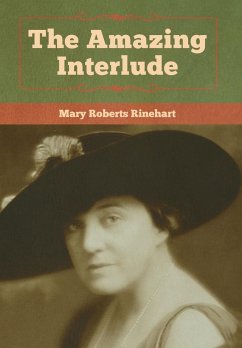It is the early days of The Great War. As the curtain rises, Sara Lee is sitting by the fire in her aunt and uncle's home, knitting a baby afghan. Her beau's name is Harvey. He has his eye on a little house that is just perfect for two and he will soon propose to Sara Lee. But in this play, the mise en scène is about to change. A fairyland transformation will take place and Sara Lee will step into a new and different story, where she is the princess in a forest of adventure. There is a prince, too, whose name is Henri. He is as strange as the forest itself. And then just as suddenly, the scene changes back and Sara Lee is once again sitting alone by the fire, knitting socks for the soldiers this time, and with a memory and a new stirring in her heart. This is the story of Sara Lee's amazing interlude.








